Equine photography can be used as a tool for mental health difficulties and depression. The author only briefly touches on the technical aspects of the art of photography as she believes it's not about the quality of the images that you make that's important. Horses are the perfect animal to help humans to heal.

How To Use Equine Photography For Mental Health Therapy
by tinacollins
This particular type of therapy is all about your emotions, thoughts and feelings in the moment and beyond.
Photography Is A Creative Art Form
Photography is a creative art form of using a camera to capture and record images of just about anything you can think of. There are many types of photography including portraiture, macro, landscape, weddings and nature, just to name a few.
Photography can be also used as therapy to help with mental health difficulties. In order to use photography as therapy you do not need to be a professional photographer. All your images are for your personal use only.
Work Your Way Through The Equine Photography For Therapy Workbook
Improve your photography and help mental health difficulties!
Discover the therapeutic power of equine photography!
This course will delve into the profound benefits of combining equine activities with photography to enhance mental well-being.
Guided by a self-help workbook, participants will explore techniques to use horses as photographic subjects, fostering mindfulness, emotional expression, and stress relief.
Through hands-on activities like photographing horses in their natural habitat and learning about the psychology behind equine-assisted therapy, participants will gain a deeper understanding of mental health and personal growth.
Self Help Equine Photography Workbook for Mental Health Therapy
Self Help Equine Photography Course Workbook Paperback
 |
| Self Help Equine Photography Course Workbook Only $8.99 |
Equine Photography Topics Available To Learn
Plenty of Exercises!
Some of the skills and qualities that therapeutic equine photography can help with are:
-
Improving relationships with friends and family. Get everyone together and show them your photographs :)
-
Becoming more aware of your surroundings.
-
Strengthening and improving your confidence, self-esteem and well-being.
-
Bringing public attention to poor horse welfare.
-
Useful as a distraction from pain either physical or mental.
-
Taking you away from all of your troubles in the present.
-
Requiring total concentration.
-
Exploring your memories.
-
Creating structure and order.
-
Encouraging you to look at the world from a different perspective.
-
Giving another form of expression. Maybe verbalisation is difficult for you or you don’t find writing thoughts down easy.
-
Overcoming social isolation.
-
Reducing the level of the stress hormone, Cortisol.
-
Improving Teamwork.
Equine Photography For Mental Health Therapy
 |  |  |
| Equine & Equestrian Photography Poses... Only $34.95 | Bob Langrish’s World of Horses: A Mas... | How to Photograph Horses and their Hu... Only $21.99 |
 |  |  |
| Photographing Horses: How To Capture ... | Digital Photography Complete Course: ... | Horse: A Portrait: A Photographer's L... |
Photography TIP - Avoid Spooking Your Subject
If your camera makes a sound when you press the shutter, switch this off in the camera settings to avoid spooking your subject.
Don’t chase your subjects around. Even if you’re not in the field and are in an adjoining one, it is still possible to worry or hassle an animal unnecessarily in order to obtain a photograph. If they move away from you, do not follow them. Leave them be.
Bringing Public Attention To Poor Horse Welfare
By harnessing the power of impactful photography, utilising effective communication
strategies, and aligning yourself with established organisations, you can play a significant
role in bringing public attention to poor horse welfare and advocating for positive change.
This element is therapeutic in the sense that you will develop an overwhelming sense of
achievement, and joy at being able to help those who suffer, and you will definitely be
learning a new skill!
Photography TIP - Make Use of Camera Accessories and Add Ons
To avoid the need to get up close and personal, use a zoom lens for your camera.
Use the composition rule of thirds in photography to make the subject really stand out and make your images look professional. See image below of the donkey (my image) showing a grid. The eye of the donkey is shown to be placed perfectly!
At some point you may wish to edit your images. No photographer, amateur or professional, can make a completely perfect image straight out of the camera. Love it or hate it, editing is a must.
Learn How To Express Yourself Non-verbally
Photography is a versatile medium that allows you to capture and express your inner world and outer experiences. You can use it to:
- Visualise emotions: Convey feelings like joy, sadness, anger, or peace through evocative images.
- Document the world around you: Capture landscapes, people, and moments that inspire you.
- Explore your thoughts and ideas: Use photography to translate abstract concepts into tangible visual representations.
- Preserve precious memories: Create a lasting record of significant events and personal milestones.
By harnessing the power of photography, you can unlock your creativity, connect with the world around you, and share your unique perspective with others.
Photography TIP - Look Back At Your Images
Later on, have a look back at the photographs you made and reflect on the time you spent with those horses.
What emotions does it invoke?
Guiding Horses: Equine Assisted Therapy
Equine Photography is A Equine Assisted Learning Activity
Equine Assisted Therapy
 | 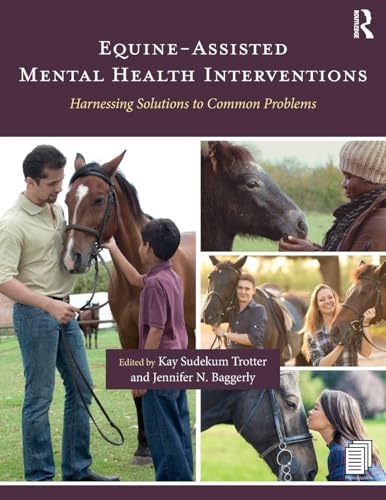 |  |
| The Horse Leads the Way: Honoring the... | Equine-Assisted Mental Health Interve... Only $26.35 | The Art of Facilitation, with 28 Equi... Only $22.32 |
 |  | 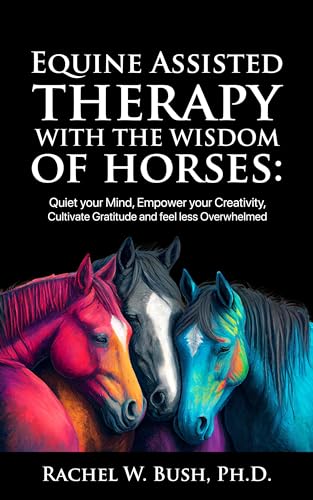 |
| Equine-Assisted Mental Health for Hea... | PROGRAM FAVORITES: A COLLECTION OF EQ... Only $22.5 | Equine Assisted Therapy With The Wisd... Only $9.99 |
Photography TIP - Do Keep Practising
As you make more photographs, the better you will become. Practice makes perfect! It’s inevitable that you will make some pretty awful images to begin with IF you have never used a camera before.
They could be out of focus, maybe you missed your subject completely, have poor composition, be too dark, too light, etc.
Don't worry too much! Pick up your camera and try again.
Your Post Equine Photography Therapy Routine
Here is a list of other activities you can do after you’ve completed your therapy session!
- Using your photographs analyse them and test yourself by naming all the points of the horse.
- Create an online journal or collage to share with friends and family.
- Create a photo book. Buy a hard copy and give it as a gift to your friends or family.
- Try using different positions or angles to photograph the horse. Be safe!
- Try and photograph as many horse portraits as you can.
More Activities are listed in the Self Help Equine Photography Course Workbook - https://amzn.to/3AXPCEF
Professional Equine Photographers
Check out these professional equine photographers for ideas for composition, techniques, angles and effects.
-
Matthew Seed - https://horse-photographer.co.uk/
-
Sue Westwood-Ruttledge - https://www.horsephotographeruk.co.uk/
-
Mark Beaumont - https://markbeaumont.co.uk/
You might also like
Could Equine Assisted Therapy Benefit Those With Personality D...Working with horses to improve mental health by using the established module ...
Cognitive Behavioral Therapy - What Everyone Needs to KnowCognitive Behavioral Therapy also known as CBT is a highly effective treatmen...
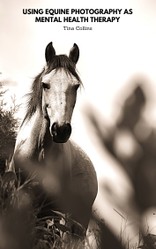

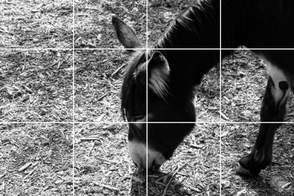




 Understanding Depressionon 12/05/2024
Understanding Depressionon 12/05/2024
 The Mystery Predators of Britainon 12/05/2024
The Mystery Predators of Britainon 12/05/2024
 Support Your Local Pet Rescue Charityon 12/05/2024
Support Your Local Pet Rescue Charityon 12/05/2024
 Could Equine Assisted Therapy Benefit Those With Personality Disorderson 12/05/2024
Could Equine Assisted Therapy Benefit Those With Personality Disorderson 12/05/2024

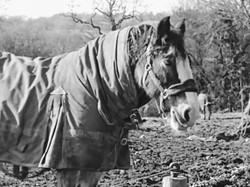
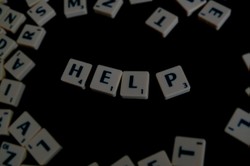
Comments
Online sources indicate that donkeys invoke success rates in sessions acquainting all-ages people with such chore-friendly animal sentients as racing, service and sled dogs; and service and therapy cats, donkeys and horses.
The above sources list bolting tendencies as a disadvantage of horses over donkeys.
Might bolting possibilities mitigate with intensive service and therapy training and work or might they be near-improbably but slightly ultimately possible?
From what I've seen, it is the tiny dogs that ride. I've yet to see one of the bigger breeds! Terrier breeds are usually found riding and I think they have exceptional balance and they also sit in the curve of the back. One example is here on Youtube: https://www.youtube.com/watch?v=AaxjZ...
Thank you for your comments below in answer to my previous observations and questions.
Your answer three boxes down that "Cats and horses, yes! Also dogs, too. Both will ride on the horse's back" intrigues me.
Book, internet and magazine images and my first neighbor's horse Bullseye here serve as examples known to me of feline sentients atop equine-sentient backs, but not of canine sentients.
How would puppy and grown-up dogs stay on horse backs? Would they just sit like on a floor or would they gently dig a claw somewhere into the back skin as something like a steadying attachment?
I don't see why not :D
Thank you for your comment in the second box down, in answer to my previous observation and question.
Your answer is most elucidatingly helpful!
Does that rule apply to any subject or might only certain subjects -- such as animate versus inanimate -- benefit?
Cats and horses, yes! Also dogs, too. Both will ride on the horse's back.
Thank you so much! The rule of thirds is all about composition, where the subject you are photographing lies in your overall image. Placing a grid of 2 horizontal and vertical lines over your image (sectioning your image into 3's) you can judge where certain elements of your subject lies in your image, making your subject stand out. I hope this explains things okay!
Perhaps the 14th item under the sixth subheading, Equine Photography Topics Available To Learn, accounts for therapeutic equine-human interactions.
Improving teamwork always aids everybody and everything. Horses ascertain what they ask of us and what we ask of them.
And they cooperate with photo opps by never a "bad hair" day.
One discerns the above truth in the charming image, on the front cover of your product line How to photograph horses and their humans, of the beautifully coiffed and groomed horse making eye contact with us, correct?
The computer crashed before I could communicate another component of my observation and question below.
Is it not known the mutual benefits of equine- and feline-sentient interactions? Famous racehorses with their feline companions on their backs number among images beloved to some Unitedstatesians!
What a wonderful wizzley about just another way that horse sentients aestheticize and aid us and all the world!
The second paragraph to the seventh subheading, Make Use of Camera Accessories and Add Ons, advises us that "Use the composition rule of thirds in photography to make the subject really stand out and make your images look professional."
What is the "rule of thirds"?